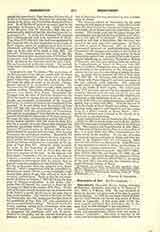

Crescimbeni, GIOVANNI MARIO, Italian historian of literature, chronicler, and poet, b. in Macerata, October 9, 1663; d. March 8, 1728. He was educated at Rome for the law, but gave most of his time to poetry and literature. In 1679 he was made doctor of laws, and in 1705 Clement XI named him canon of Santa Maria in Cosmedin. A few years later (1719) the same pontiff appointed him archpriest, and in the same year he was ordained to the priesthood.
Crescimbeni composed tragedies and rime of various kinds, and translated into Italian verse two books of Lucan’s “Pharsalia”. His prose is superior to his verse, and it is especially as a literary critic that he is known. His special studies in Italian literature helped to pave the way for the general histories of that subject. His greatest work, “Dell’ Istoria della volgar poesia” (6 vols., Rome, 1698), was one of the best productions of its kind and is still of considerable value. In it he treats of the origin and development of Italian poetry, appreciates the works of the one hundred chief Italian poets, arranges the poets in chronological order, and discusses the art and kinds of poetry. This huge work was followed in 1702 by the “Commentarii intorno alla sua Istoria della volgar poesia”, in 5 volumes, which was at first undertaken to supersede the “Istoria”; but since this had met with such favor, the new work became a supplement to it.
Crescimbeni will also be remembered as one of the founders of the Academy of “Arcadia, conversatione di belle lettere”, over which he presided from its foundation in 1690 to the time of his death. “Arcadia” was a kind of pastoral republic, whose members included the leading scholars and poets of Italy who strove to root out the perverted taste of the seventeenth century in matters of art and literature, and to introduce a simpler and more natural style into Italian prose and poetry. The society grew out of a somewhat similar society which had been patronized by Queen Christine of Sweden (d. 1689), who had taken up her residence in Rome. “Arcadia” grew in importance and numbers; “Colonies” were established in the principal Italian cities; and its influence extended even beyond the borders of Italy. The members assumed shepherds’ names, and took as their device a Pan’s pipes surrounded by laurels. (See Roman Academies.)
The Life of Crescimbeni, with a list of his works edited and inedited, written by a contemporary, Francesco Mancurti, is in the final edition of the “Istoria” (Venice, 1730-1731), VI, 213 sq. This biographical article also gives much information on the history of the “Arcadia”. The rime were edited in Rome in 1695, and more completely in 1723.
JOSEPH DUNN

